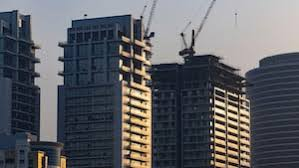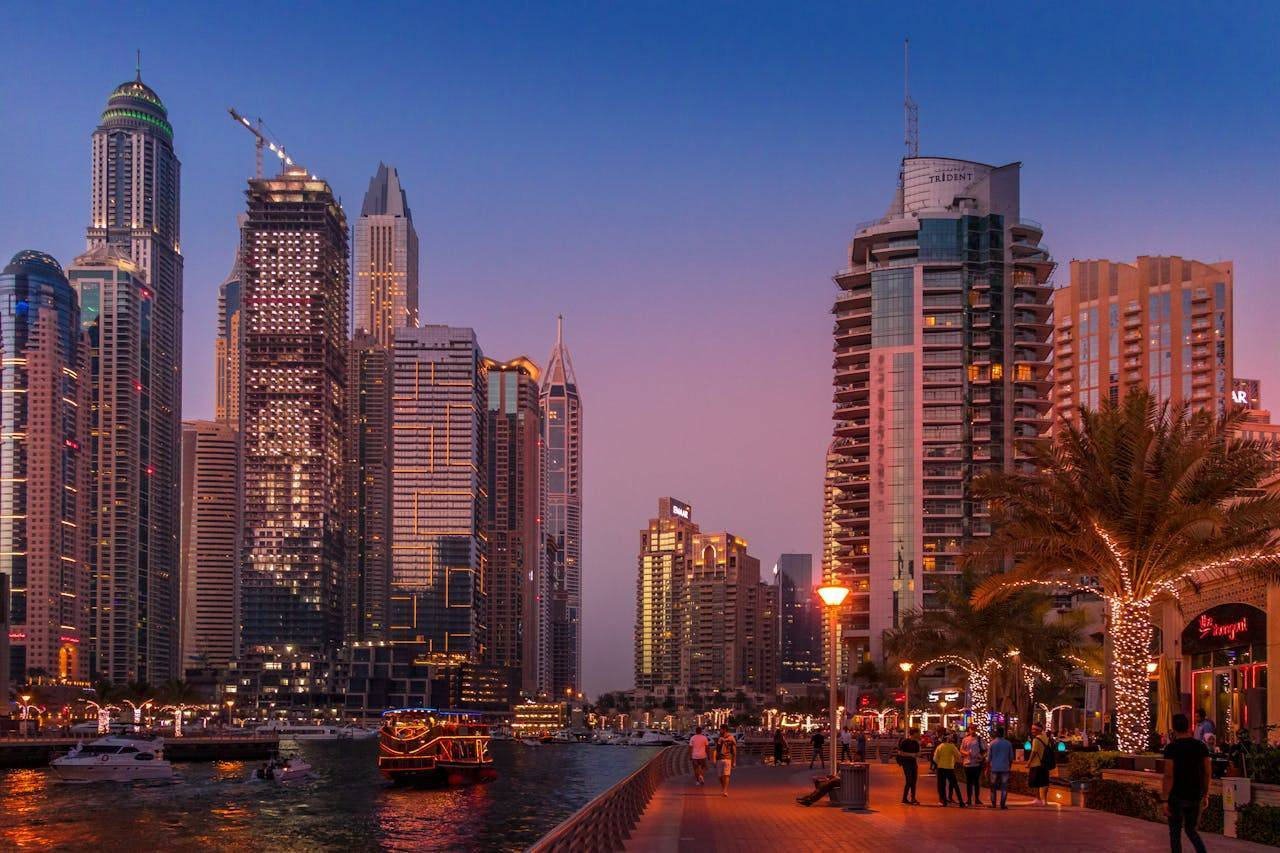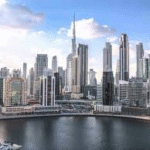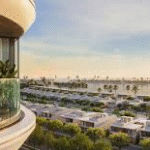Now Reading: Dubai Real Estate: 7 Tips for Foreign First-Time Buyers in 2025
-
01
Dubai Real Estate: 7 Tips for Foreign First-Time Buyers in 2025
Dubai Real Estate: 7 Tips for Foreign First-Time Buyers in 2025

Table of Contents
Foreign First-Time Buyers : Dubai’s real estate market in 2025 is a global magnet, with 94,000 residential transactions worth AED 262.7 billion in H1, up 23.04% year-on-year. Foreigners can buy properties in freehold zones under Decree No. 3 of 2006, enjoying 6–12% rental yields, 5–15% capital appreciation, and tax-free returns.
With 4 million residents, 25 million annual tourists, and infrastructure like the Blue Line Metro, Dubai offers opportunity and lifestyle appeal. For first-time buyers, navigating regulations, costs, and risks can be daunting. This guide provides seven practical tips to help foreign first-time buyers purchase property in Dubai confidently and securely in 2025.
1. Understand Freehold Ownership Rules
Foreigners can only buy properties with full ownership rights in designated freehold zones like Dubai Marina, Jumeirah Village Circle (JVC), Downtown Dubai, Business Bay, and Dubai South. Non-freehold areas are restricted to UAE/GCC nationals. Freehold ownership grants perpetual rights, transferable to heirs, unlike leasehold markets. Verify the property’s freehold status via the Dubai Land Department (DLD) portal or title deed, which must state “freehold.” For example, a AED 800,000 studio in JVC offers 7.5–9.3% yields and clear ownership. Work with a RERA-registered agent (verifiable via the Dubai REST app) to confirm zoning.
2. Research the Market and Set a Budget

Use platforms like DXB Interact, Property Finder, and Bayut to explore high-demand areas:
- Affordable zones: JVC (from AED 420,000, 7.5–9.3% yields), Dubai South (from AED 480,000, 8–11% yields).
- Luxury zones: Dubai Marina (from AED 800,000, 6–10% yields), Palm Jumeirah (from AED 3.5 million, 5–7% yields).
Set a budget including 6–8% in fees: 4% DLD transfer fee (often split), 2% agent commission plus 5% VAT, and registration fees (AED 4,200 for properties over AED 500,000). For a AED 1 million property, expect AED 60,000–80,000 in fees. Define goals—rental income, capital gains, or Golden Visa eligibility (AED 2 million threshold)—and monitor infrastructure updates (e.g., Blue Line Metro) via the RTA Dubai App for appreciation potential.
3. Engage RERA-Registered Professionals
Hire a Real Estate Regulatory Agency (RERA)-registered agent, verifiable via the Dubai REST app using their Broker Registration Number, to guide you through listings and negotiations. Engage a legal advisor to review sales purchase agreements (SPAs), especially for off-plan properties like Sobha Verde (AED 1.2 million), to ensure compliance with DLD and RERA regulations. A tax consultant can help leverage VAT exemptions on residential purchases (5% savings) and minimize 9% corporate tax on rentals over AED 375,000 via DIFC/DMCC free zone companies. Professionals reduce fraud risks, with 150+ scam cases reported in 2024.
4. Verify Developer and Property Credentials
For off-plan properties (63% of 2024 sales), choose reputable developers like Emaar, Nakheel, or DAMAC, and check their ratings on DLD’s developer portal. Confirm escrow accounts, mandated by Law No. 8 of 2007, to protect deposits (e.g., AED 66,000 for a 10% deposit on a AED 660,000 Cubix Residences studio). For ready properties, request a no-objection certificate (NOC) to verify no outstanding dues. Conduct a snagging survey (AED 3,000–5,000) for ready homes to identify defects. Use DLD’s title deed verification service to confirm ownership and avoid scams.
5. Explore Financing and Payment Options
- Mortgages: Non-residents can secure 50–70% loan-to-value mortgages from UAE banks (e.g., Emirates NBD, HSBC) at 3–5% rates. Provide passport, 3–6 months’ bank statements, and an Al Etihad Credit Bureau report (AED 100). Mortgage fees: 0.25% of the loan plus AED 290. For a AED 1 million loan, expect AED 2,790 in fees.
- Off-Plan Payment Plans: Developers offer 60/40 or 50/50 plans, requiring 10–20% deposits (e.g., AED 120,000 for a AED 1.2 million apartment). Verify milestones via DLD reports.
- Use UAE-based forex services to lock in exchange rates for overseas funds, minimizing currency risks. Compare mortgage offers and payment plans to optimize cash flow.
6. Understand the Purchase Process
Select a property, sign the SPA (detailing price, terms, and handover), and pay a 10–20% deposit to the seller or escrow account. Register the SPA with DLD for interim protection (AED 1,000–2,000). For mortgages, undergo a bank valuation (AED 2,500–5,000). On handover or completion, pay the remaining balance, 4% DLD fee, and registration fees at a DLD office or Trustee Centre to obtain the title deed. For Golden Visa eligibility (AED 2 million+), submit the title deed, passport, and health insurance to DLD Cube (fees: AED 9,884.75 primary, AED 5,774.50 per family member).
7. Plan for Post-Purchase Management

Register utilities with DEWA (AED 1,000–2,500 setup fee). For rentals, obtain a holiday home permit for short-term lets (e.g., Airbnb in Dubai Marina, 9–12% yields) or register long-term leases via DLD’s Ejari system (AED 220). Budget for 5% municipality housing fees on rental income, service charges (AED 7–30 per sq. ft.), and 1–2% annual maintenance. Non-residents can hire property management firms to handle tenants and optimize yields using the Dubai Smart Rental Index 2025. Monitor compliance with RERA regulations to avoid penalties.
Strategic Tips for First-Time Buyers
- Start with affordable zones like JVC or Dubai South for high yields (7.5–11%) or Dubai Marina for balanced returns (6–10%).
- Budget carefully, accounting for 6–8% in fees and ongoing costs like service charges and maintenance.
- Verify developer reliability and escrow accounts via DLD to avoid delays (5–10% of projects delayed in 2024) or fraud.
- Leverage tax-free gains by holding properties individually or use DIFC/DMCC companies to minimize 9% corporate tax on high rental income.
- Monitor market trends via DXB Interact, Property Finder, and Bayut. Track infrastructure like Blue Line Metro for appreciation potential.
- Consult tax advisors for home country tax obligations (e.g., UK’s 18–28% capital gains tax) and leverage UAE’s double taxation agreements with over 100 countries.
Conclusion
Foreign first-time buyers can confidently enter Dubai’s 2025 real estate market by understanding freehold rules, researching the market, engaging RERA-registered professionals, verifying credentials, exploring financing, following the purchase process, and planning post-purchase management.
With 6–12% yields, 5–15% capital gains, and tax-free benefits in freehold zones like JVC and Dubai Marina, Dubai offers a lucrative opportunity. By using DLD tools, working with trusted professionals, and staying informed via platforms like Bayut, first-time buyers can secure profitable investments while navigating Dubai’s regulated, dynamic market with ease.
read more: Can Foreigners Own Villas in Dubai? What You Must Know in 2025






















